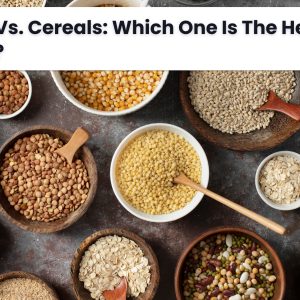
Cellular Hydration: What It Is and Why It Matters
Hydration is essential for our overall health, but many people may not realize that cellular hydration is a crucial aspect that often goes overlooked. This blog will explore what cellular hydration is, why it matters, and how you can ensure your cells stay hydrated for optimal health.

What Is Cellular Hydration?
Cellular hydration refers to the process by which water enters cells, allowing them to function properly. Every cell in our body requires water to maintain its structure and support its biochemical processes. Water serves as a medium for biochemical reactions, transports nutrients, and helps remove waste products from the body.
Unlike hydration at the surface level, which can be achieved by simply drinking fluids, cellular hydration ensures that water penetrates deep into the cells. This process is vital for maintaining cellular homeostasis, the balance required for cells to operate efficiently.

Why Cellular Hydration Matters
1. Supports Cellular Function
Water is fundamental to cellular function. It helps regulate body temperature, transport nutrients, and facilitate metabolic reactions. When cells are adequately hydrated, they can perform their functions optimally, which is crucial for overall health.
Dehydrated cells can lead to impaired function, resulting in fatigue, decreased cognitive function, and a host of other health issues. Adequate cellular hydration supports energy production, enabling cells to convert nutrients into usable energy efficiently.
2. Enhances Nutrient Absorption
Proper cellular hydration improves the absorption of nutrients and minerals into the cells. When cells are well-hydrated, they can better absorb essential nutrients from the bloodstream. This is particularly important for athletes and individuals engaging in regular exercise, as they require optimal nutrient absorption to support recovery and performance.
3. Aids in Detoxification
Cellular hydration plays a significant role in the body’s detoxification processes. Water helps flush out toxins and waste products from the cells, allowing the body to eliminate harmful substances more effectively. When cells are dehydrated, this detoxification process can become sluggish, leading to a buildup of toxins in the body.
4. Promotes Healthy Skin
Hydrated cells contribute to healthy, glowing skin. When the cells in your skin are adequately hydrated, they appear plumper and more resilient. Dehydrated skin cells can lead to dryness, flakiness, and premature aging. Ensuring proper cellular hydration can help maintain skin elasticity and texture.
5. Boosts Cognitive Function
The brain is composed of approximately 75% water, making cellular hydration critical for cognitive function. Studies have shown that even mild dehydration can impair concentration, memory, and overall cognitive performance. Maintaining cellular hydration supports brain function, improving focus, mood, and mental clarity.
6. Regulates Body Temperature
Water plays a vital role in regulating body temperature. During physical activity or in hot environments, hydration helps dissipate heat through sweat. Proper cellular hydration ensures that your body can maintain a stable temperature, preventing overheating and heat-related illnesses.

How to Ensure Cellular Hydration
1. Drink Adequate Water
While this may seem obvious, drinking enough water throughout the day is essential for maintaining cellular hydration. The general guideline is to drink at least 8-10 cups (64-80 ounces) of water daily, but individual needs may vary based on factors such as age, activity level, and climate.
2. Consume Hydrating Foods
In addition to drinking water, incorporating hydrating foods into your diet can significantly contribute to cellular hydration. Foods with high water content, such as cucumbers, watermelon, oranges, and spinach, can help keep your cells hydrated. Aim to include a variety of fruits and vegetables in your daily meals.
3. Balance Electrolytes
Electrolytes are minerals that help regulate fluid balance in the body. When you’re dehydrated, it’s essential to replenish electrolytes, especially after exercise or in hot weather. Foods rich in potassium, sodium, and magnesium—such as bananas, avocados, nuts, and leafy greens—can help maintain electrolyte balance and support cellular hydration.
4. Limit Dehydrating Beverages
Certain beverages can contribute to dehydration, including those containing caffeine and alcohol. While moderate consumption is generally fine, it’s essential to balance these drinks with plenty of water. If you enjoy coffee or alcohol, make sure to drink an equal amount of water to counteract their dehydrating effects.
5. Pay Attention to Signs of Dehydration
Recognizing the signs of dehydration is crucial for maintaining cellular hydration. Common symptoms include dry mouth, fatigue, dizziness, and dark urine. If you experience these symptoms, it’s essential to increase your fluid intake and focus on rehydrating your cells.
Summary
Cellular hydration is a fundamental aspect of overall health that deserves attention. By understanding its importance and incorporating strategies to ensure adequate cellular hydration, you can support your body’s functions, enhance your physical performance, and promote your well-being.
In a world where many people experience chronic dehydration, making conscious choices to hydrate at the cellular level can lead to significant health improvements. Remember, staying hydrated is not just about drinking water; it’s about ensuring your cells receive the hydration they need to thrive.





